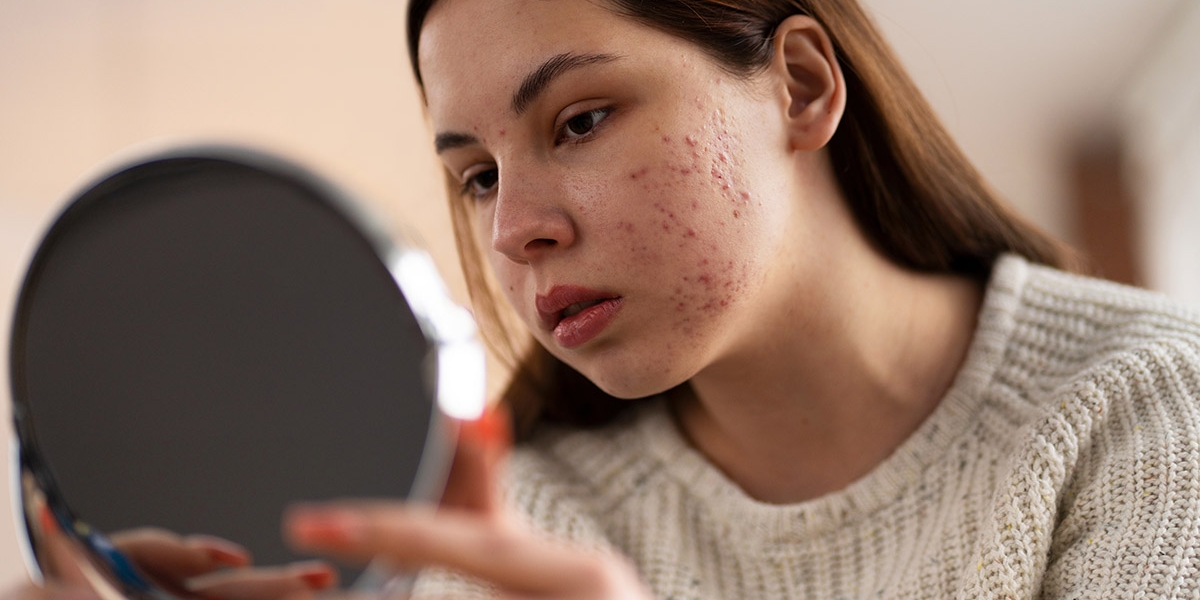
Acne is a common skin condition that affects individuals of all ages and backgrounds. However, with its prevalence comes a plethora of myths and misconceptions. As a renowned dermatologist with years of experience, Dr. Kalyani Katkar is dedicated to shedding light on these myths and offering evidence-based advice on how to effectively manage and treat various types of acne. In this blog post, we will explore some of the most prevalent acne myths and replace them with accurate information provided by Dr. Katkar.
Myth 1
Acne Only Affects Teenagers Contrary to popular belief, acne doesn't restrict itself to the teenage years. Adults, both young and mature, can also experience acne flare-ups. Dr. Katkar emphasizes that hormonal changes, stress, and lifestyle factors can contribute to acne in individuals well beyond their teenage years.
Myth 2
Popping Pimples is the Best Way to Get Rid of Them One of the most harmful misconceptions is that popping pimples will expedite their healing process. Dr. Katkar firmly advises against this practice, as it can lead to infection, scarring, and prolonged inflammation. Proper acne treatment involves gentle cleansing, topical treatments, and sometimes oral medications, as recommended by a dermatologist.
Myth 3
Eating Greasy or Oily Foods Causes Acne While diet does play a role in overall skin health, Dr. Katkar clarifies that consuming greasy or oily foods alone doesn't directly cause acne. However, diets high in refined sugars and dairy products might influence acne development in some individuals. A well-balanced diet rich in fruits, vegetables, whole grains, and lean proteins can support skin health.
Myth 4
Sun Exposure Helps Clear Acne Exposing your skin to the sun may temporarily improve the appearance of acne due to its drying effect. However, prolonged sun exposure can lead to more significant skin issues, including sunburn and an increased risk of skin cancer. Dr. Katkar recommends using a broad-spectrum sunscreen daily to protect the skin while undergoing acne treatments.
Fact 1
Different Types of Acne Require Different Treatments Not all acne is created equal. Dr. Katkar explains that there are various types of acne, including blackheads, whiteheads, papules, pustules, and cysts. Each type requires a tailored approach to treatment. Consulting a dermatologist ensures a personalized plan based on the severity and type of acne you're dealing with.
Fact 2
Consistency is Key in Acne Treatment Patience and consistency are vital when it comes to treating acne. Overnight solutions are rare, and Dr. Katkar emphasizes the importance of sticking to prescribed skincare routines and medications. Results may take weeks to become apparent, but consistent effort yields the best outcomes.
Fact 3
Professional Guidance Makes a Difference Seeking professional help from a qualified dermatologist like Dr. Kalyani Katkar is the most reliable way to manage and treat acne. Dermatologists can accurately diagnose the underlying causes of acne and recommend evidence-based treatments that address those causes effectively.
Conclusion
In a world saturated with misinformation about acne, it's crucial to turn to experts like Dr. Kalyani Katkar for accurate guidance. By dispelling common myths and presenting evidence-based facts, Dr. Katkar empowers individuals to make informed decisions about their skincare routines and treatments. If you're struggling with acne, remember that there is no one-size-fits-all solution. Consulting a dermatologist and following their advice diligently is the path to clearer, healthier skin.

